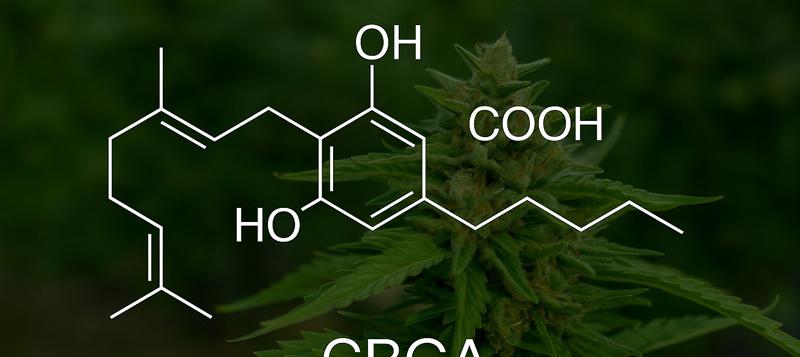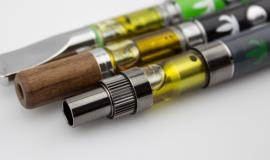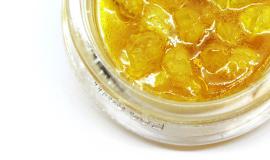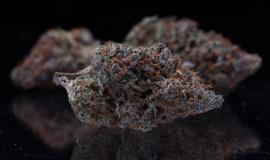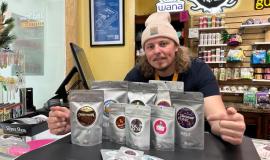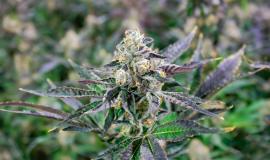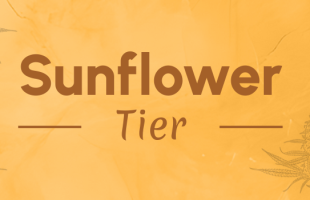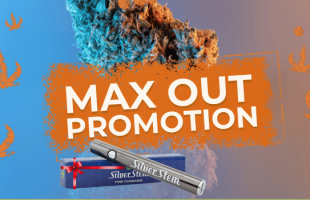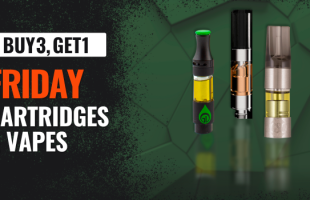CBGA Cannabinoid: Benefits, Effects, and Its Role in the Cannabis Plant
CBGA may not be as well-known as THC or CBD, but it plays a key role in shaping them.
What Is CBGA?
CBGA, or cannabigerolic acid, is often referred to as the “mother cannabinoid.” It serves as the precursor to the three primary cannabinoid acids: THCA, CBDA, and CBCA. Through a natural process called decarboxylation, CBGA eventually transforms into CBG - a minor cannabinoid in terms of quantity, but a major one in terms of impact. Found primarily in raw, young cannabis plants, CBGA is rarely consumed on its own but is essential in shaping the plant’s overall chemical profile.
How CBGA Works in the Cannabis Plant
Inside the cannabis plant, CBGA is the first cannabinoid acid produced as the plant matures. It acts as a chemical foundation. Enzymes within the plant determine whether CBGA becomes THCA (which eventually becomes THC), CBDA (which becomes CBD), or CBCA. Environmental factors like light, temperature, and strain genetics can influence this conversion. Without CBGA, the cannabis plant would not be able to produce the cannabinoids responsible for its various effects.
CBGA vs CBG – What's the Difference?
Although they are closely related, CBGA and CBG are not the same. CBGA is the raw, acidic version of the cannabinoid, while CBG is the neutral compound that appears after decarboxylation (usually via heat). Most products on the market feature CBG rather than CBGA, since CBGA exists in small quantities and is often converted into other cannabinoids. That said, some live resin or raw cannabis extracts may retain CBGA for those interested in its potential properties.
Potential Benefits of CBGA
Research into CBGA is still in the early stages, but preliminary findings and anecdotal reports suggest it may offer a range of potential benefits. While no medical claims can be made, here are some areas of growing interest:
- May support healthy metabolism and blood sugar regulation
- Studied for possible anti-inflammatory properties
- Potential role in cardiovascular health, particularly enzyme inhibition related to heart disease
- May contribute to overall wellness when used in combination with other cannabinoids (entourage effect)
More clinical research is needed to confirm any therapeutic uses, and effects may vary between individuals.
How to Consume CBGA
Since CBGA rapidly converts into other cannabinoids during the plant’s growth and when exposed to heat, most cannabis flower contains very little of it by the time it's dried and cured. However, CBGA can be found in small amounts in:
- Raw cannabis juice or smoothies (from fresh flower or leaves) - Live resin and other full-spectrum extracts - Some tinctures and edibles labeled specifically for CBGA
Keep in mind that traditional smoking and vaping will typically decarboxylate CBGA into CBG or other cannabinoids, so for those seeking CBGA specifically, raw or cold-processed products are the way to go.
Strains High in CBGA
Because CBGA is a precursor rather than an end-product, most strains contain it only in their early stages. However, cultivars bred for high CBG content often start with elevated CBGA levels. Look for strains like White CBG, Jack Frost CBG, or other CBG-rich genetics if you’re interested in exploring CBGA in its earlier form. Fresh or live-harvest products may retain more of it before it converts.
The Bottom Line
CBGA might not be a household name, but it’s one of the most important cannabinoids in the entire cannabis plant. As the source of THC, CBD, and other major cannabinoids, it plays a critical role in the plant’s development and the effects we associate with marijuana. While research is still ongoing, CBGA’s foundational presence and potential benefits are capturing the attention of consumers and scientists alike. If you’re looking to explore cannabis in its most raw and unprocessed form, CBGA is where the journey begins.
Health Disclaimer: The information provided in this article is for educational purposes only and should not be taken as medical advice. Always consult with a qualified healthcare provider before using cannabis, particularly if you have pre-existing conditions or are taking medication.


